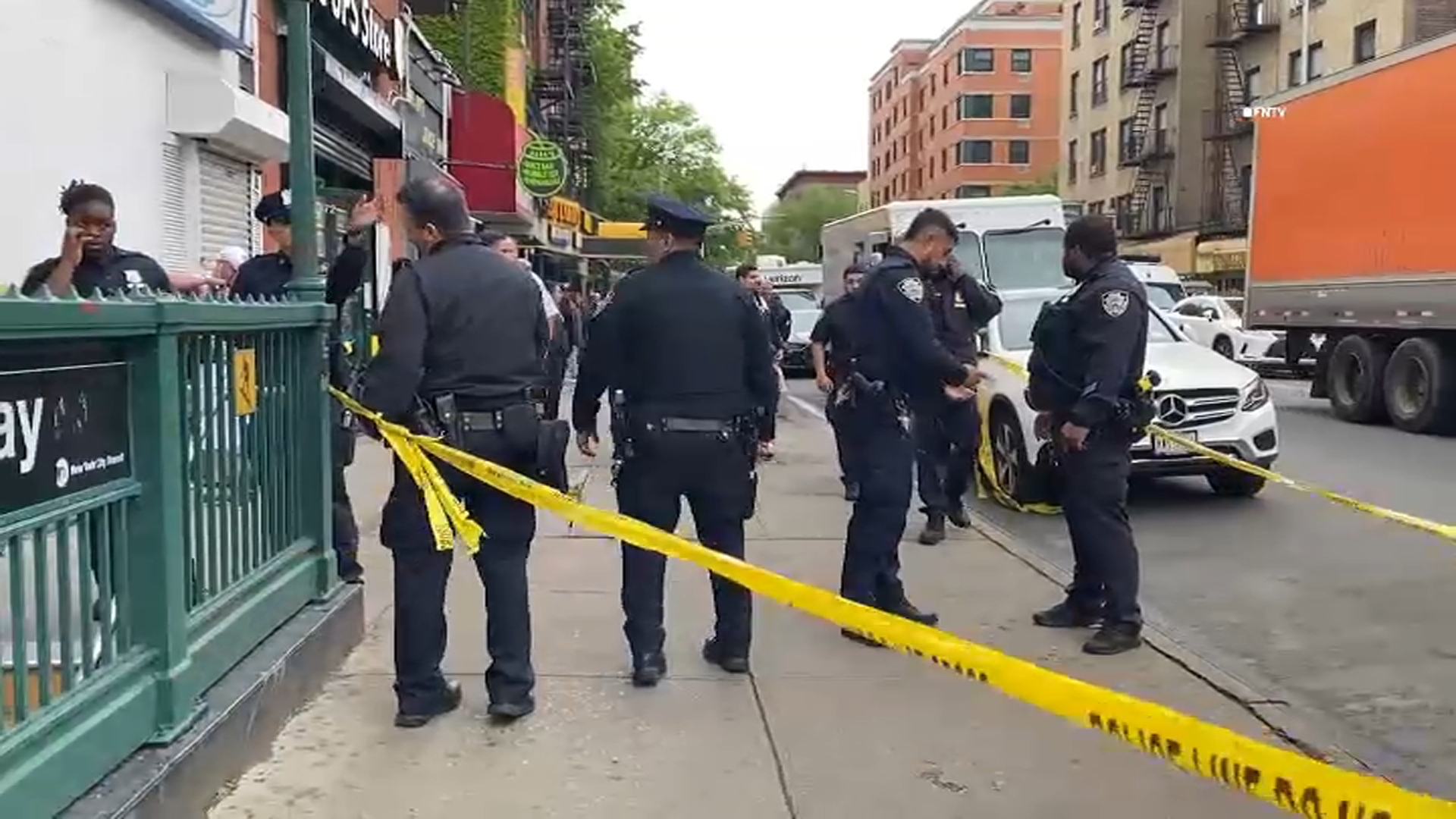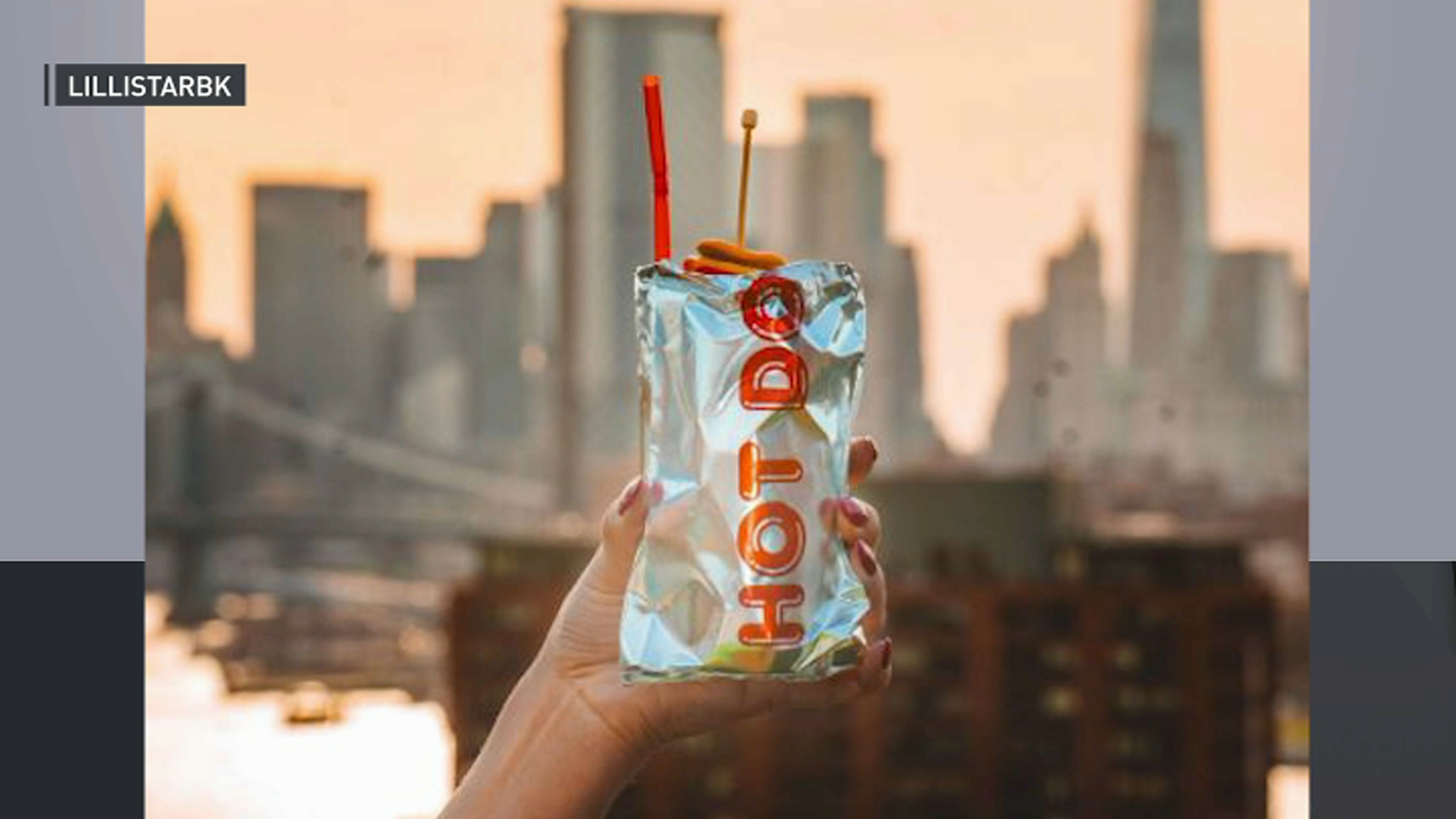Democrat Bill Thompson bowed to intra-party pressure Monday and conceded the New York City mayoral primary race to Bill de Blasio, a Brooklyn-brownstone progressive who led a populist appeal against the perceived excesses of the Bloomberg administration.
With the vote count still going, Thompson endorsed de Blasio at City Hall Monday, saying they both wanted to "move our city forward in the same direction."
"We share the fundamental same views and values. This is bigger than either one of us," Thompson said.
"There is nothing more beautiful than Democratic unity," de Blasio said, after the two former rivals embraced.
For six days after polls closed last week, de Blasio hovered near the 40 percent mark needed to avoid a runoff with Thompson, who came in second, at 26 percent. Those were unofficial returns, as the Board of Elections was still counting votes Monday.
Thompson had vowed as recently as Sunday to stay in the race until all the votes were counted. But as the tallying dragged on, advisers and supporters reportedly urged him to drop out in the name of party unity.
Thompson said Monday it was a "disgrace" that the outcome of the election was still not known, and said it was possible the votes wouldn't even have been counted by the time the runoff was supposed to be held Oct. 1.
"Under those circumstances, it is impossible to even campaign, let alone offer a meaningful choice to Democratic voters," he said. Staying on, he said, would have been a disservice to New Yorkers.
Gov. Cuomo joined Thompson and de Blasio at the City Hall announcement, noting the difficult decision Thompson made to quit the race.
"It takes a man of substance, it takes a man who really believes in public service and believes in the principles of the Democratic party to actually do it, and that's what Bill Thompson is doing today," Cuomo said.
Thompson’s withdrawal spares his party a costly additional campaign and clears the path for de Blasio to take on Republican Joseph Lhota in a general election that will likely become a proxy referendum on Mayor Michael Bloomberg’s 12-year rule.
The decision caps a wild primary campaign in which de Blasio’s emphasis on income inequality and aggressive police tactics propelled him from the back of the pack to the front. The more established, centrist candidates -- Thompson and City Council Speaker Christine Quinn -- were left in the dust.
With the general election lineup set, the city faces a boisterous two months in which de Blasio will attempt to break a two-decade GOP run of mayoral elections. Democrats outnumber Republicans 6-to-1 in New York, but the party hasn’t elected a mayor since David Dinkins in 1989.
The Republican streak began with Rudy Giuliani in 1993 and 1997, and continued with Bloomberg, a billionaire who self-financed successful campaigns in 2001 and 2005, then persuaded city leaders to change the law to allow him to seek a third term in 2009.
Local
Anger over the term-limit evasion remains palpable, and was one of the issues that de Blasio exploited during the primary.
A career political operative who served in the City Council before he was elected public advocate four years ago, de Blasio portrayed himself as the lone progressive in a field of mainstream bureaucrats unwilling to shake things up.
With de Blasio on the far left, and Lhota on the center-right, the 2013 election could hinge on the candidates’ ability to attract the many voters who stand in the ideological gap between them.
Lhota, a former MTA chairman who served as one of Mayor Rudy Giuliani’s top deputies, calls himself a moderate Republican with social positions that reflect those of predominantly Democratic New York – he supports same-sex marriage and abortion rights -- but with a tougher line on law and order.
Most telling, he supports stop and frisk, and has pledged to continue Bloomberg's fight to overturn a federal judge’s ruling that the tactic was unconstitutional.
That issue is sure to become a crucible in the campaign. De Blasio has staked out a far-left position against stop and frisk, and used it to distinguish himself from his primary rivals.
Lhota congratulated de Blasio on securing the Democratic nomination in a statement Monday, and said he looked forward to a "vigorous debate about the issues that matter to New Yorkers."
He added, "Over the next two months voters will see a stark contrast between myself and Mr. de Blasio."
De Blasio can be expected to portray Lhota as the face of an old-guard Republican-style of crime-fighting that has run roughshod over civil liberties. Lhota is likely to try to paint de Blasio as an inexperienced ideologue who’d send the city back to the high-crime 1980s.
Bloomberg said last week he won't endorse anyone in the general election, but he will no doubt loom large in the campaign. The billionaire technocrat came to office months after the 9/11 terror attacks and helped steer the city through the economic downturn that followed.
Bloomberg’s mayoralty was marked by a period of historically low crime, aggressive development and economic turnarounds of historically troubled neighborhoods. But more recently he’s run into a backlash against stop and frisk, and has been pulled into a broader debate about the yawning gap that separates well-to-do New Yorkers from poor and working class residents.



